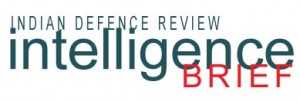The contagion of protests spreading from one country to another in the Arab world has made the ruling dispensations edgy and nervous. The general feeling in India and many other parts of the world is that the region is headed for a paradigm shift in the political discourse and will pave the way for multi-party democracy. It has caught the romantic imagination of the people of India.
I may be allowed to stress that nothing of that sort is going to happen. The protest on the streets of the Arab world, particularly Egypt is not about dictatorship versus democracy or totalitarian versus liberal regimes. It cannot be ignored that the Islamist parties and groups backing the movement, have been rabidly against any liberal policy in the political and social discourse. It must be remembered that it is ultimately the strategic considerations of the US and its western allies, which decides the political course of most countries in the region, in particular Egypt.
 The western world, particularly, America is seen to be supporting the agitation, which has turned violent on the streets of Cairo. The press in the West has been equally strident in its support for the removal of the existing dispensation in Egypt. It was the same press and the same countries in the Western World, which courted these very rulers with great bonhomie. These rulers were infact darlings of the West. It may be reiterated that USA has critical leverages in Egypt and in other parts of the Arab world. One of the largest US Embassy in the world is in Egypt. In terms of US aid, Egypt is the fourth largest recipient. Every year, Egypt receives 1.3 billion worth of military aid from the US.The so called dictators in the eyes of the Western World were certainly not despots. The same rulers have so far ensured stability in an extremely volatile region since the 1973 Arab-Israel war. Hosni Mubarak vigorously pursued peace with Israel. He is progressive in his thinking and is not bigoted. He has kept the religious fundamentalists under check. This has been in consonance with the geo-strategic sensitivities and imperatives of the West.
The western world, particularly, America is seen to be supporting the agitation, which has turned violent on the streets of Cairo. The press in the West has been equally strident in its support for the removal of the existing dispensation in Egypt. It was the same press and the same countries in the Western World, which courted these very rulers with great bonhomie. These rulers were infact darlings of the West. It may be reiterated that USA has critical leverages in Egypt and in other parts of the Arab world. One of the largest US Embassy in the world is in Egypt. In terms of US aid, Egypt is the fourth largest recipient. Every year, Egypt receives 1.3 billion worth of military aid from the US.The so called dictators in the eyes of the Western World were certainly not despots. The same rulers have so far ensured stability in an extremely volatile region since the 1973 Arab-Israel war. Hosni Mubarak vigorously pursued peace with Israel. He is progressive in his thinking and is not bigoted. He has kept the religious fundamentalists under check. This has been in consonance with the geo-strategic sensitivities and imperatives of the West.
It appears that the time had come for the US to realize that these leaders had served their utility and purpose, and in the current geopolitical environment their continuation is counter-productive to its strategic interests.
Nevertheless, it is these very policies that have made these rulers unpopular at home. They are seen as pro-US and pro-Israel. It resulted in Islamic outfits taking recourse to terrorism. It accentuated the religious factor in the geopolitical discourse of the region.
It appears that the time had come for the US to realize that these leaders had served their utility and purpose, and in the current geopolitical environment their continuation is counter-productive to its strategic interests. Most of these leaders are in their late 70s and early 80s. When consumed by natural death, the transfer of power can be most disorderly, as these leaders have neither created political institutions nor second rung leaders to fill the void. Some of these rulers find their sons or son-in-laws as the most suitable heir. The void could be well filled by unknown forces, which includes Islamic fundamentalists, thus plunging the entire region into a security nightmare. Many self-proclaimed leaders are likely to stake their claim for the highest offices, leading to chaos and instability.
Amongst these concerned countries, Egypt serves as the pivot for the strategic and geopolitical engineering of the region by the US, given the sensitivity of Arab-Israel relations, the nuclear overhang, the Suez Canal, and of course oil. It is for this reason, that there is so much of accent on replacement of Hosni Mubarak in an orderly manner.
Since Egypt is the pivot, whatever happens there, is bound to have cascading effect in other countries of the region. Egypt is the most popular and resourceful country in the region and influences the geopolitical discourse of not only the Arab world but West Asia as such.




